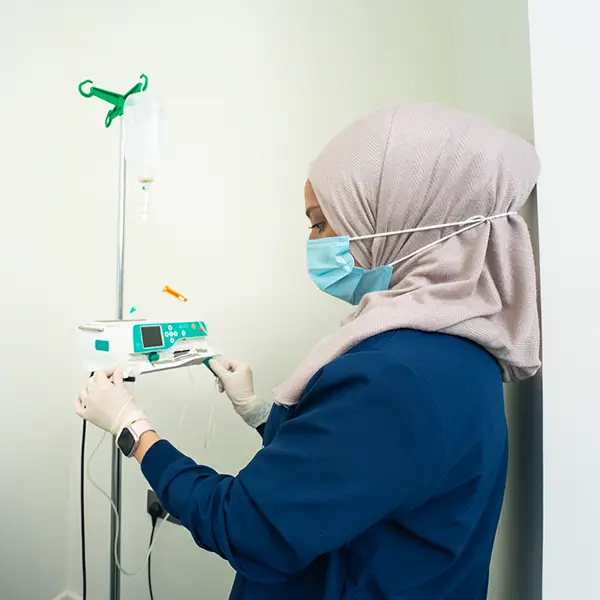For patients living with autoimmune disorders like Crohn’s disease, ulcerative colitis, or rheumatoid arthritis, Infliximab infusion therapy offers targeted, long-lasting relief from inflammation and immune-related symptoms. This guide answers common questions such as “What is Infliximab?”, “How does Infliximab work?”, and “Is IV therapy effective for autoimmune conditions?”
Key Takeaways
- Infliximab is a biologic medicine used to treat autoimmune and inflammatory diseases such as Crohn’s disease, ulcerative colitis, and rheumatoid arthritis.
- It works by blocking tumour necrosis factor-alpha (TNF-α), reducing inflammation and slowing disease progression.
- Administered through intravenous infusion therapy, infliximab provides targeted, long-lasting symptom relief.
- Regular monitoring ensures treatment safety and effectiveness in a clinical setting.
- Patients often experience fewer flare-ups, improved mobility, and a better quality of life.


How Infliximab Infusion Therapy Works
Infliximab cannot be taken as a tablet because it’s a protein-based biologic that would be destroyed during digestion. Instead, it’s given through IV infusion therapy, allowing the medicine to enter the bloodstream directly and act quickly. A typical infusion session includes:- Assessment: Review of medical history and current health status
- IV Setup: Insertion of an IV line, usually in the arm or hand
- Administration: Controlled infusion of Infliximab over 2–3 hours
- Monitoring: Continuous observation by medical staff for comfort and safety
Benefits of Infliximab IV Therapy
Patients receiving infliximab often experience
- Reduction in pain and swelling
- Fewer relapses or disease flare-ups
- Improved joint and muscle mobility
- Slower disease progression
- Enhanced overall wellbeing
Autoimmune & Inflammatory Conditions Treated with Infliximab
Infliximab is approved for a range of autoimmune and inflammatory conditions, including- Crohn’s disease
- Ulcerative colitis
- Rheumatoid arthritis
- Psoriasis
- Psoriatic arthritis
- Ankylosing spondylitis.
Side-Effects of Infliximab and Safety
Infliximab is generally well-tolerated when administered in a clinical setting under medical supervision. Mild, short-term side effects may include:
- Headache or fatigue
- Low-grade fever
- Mild nausea or redness at the injection site
Rare but serious risks: Allergic reactions or infections, which is why professional monitoring and regular lab tests are essential throughout treatment.
Routine blood tests and health assessments are part of ongoing safety monitoring to ensure optimal dosing.
What to Expect During an Infliximab Session
Frequency: Every 6–8 weeks (depending on diagnosis and response)
Duration: 2–3 hours per session
Experience: Patients relax in a recliner, read, or listen to music while nurses monitor the infusion. Most return to normal activities afterward.
Many find this approach convenient, as it reduces the need for frequent dosing and provides professional oversight at every visit.
Infliximab Infusion Therapy at IV One Infusion Centre
At IV One Infusion Centre, a trusted IV therapy centre in Riyadh, we provide expert infliximab infusion therapy in a safe and supportive setting. Our experienced clinicians design personalised treatment plans that maximise results while ensuring your comfort and safety.Get in touch with us today to learn more about biologic and intravenous therapy options for autoimmune and inflammatory conditions.


